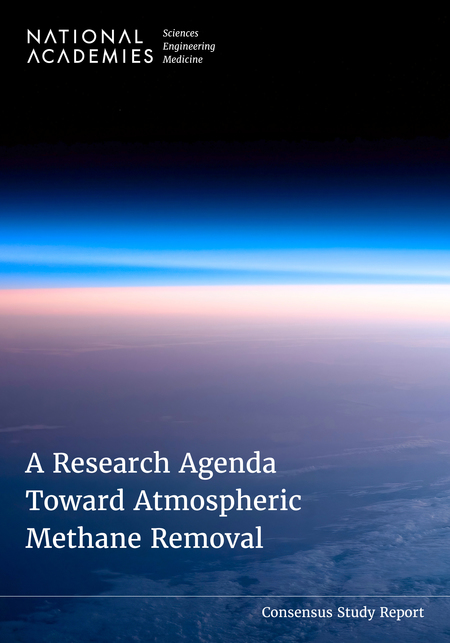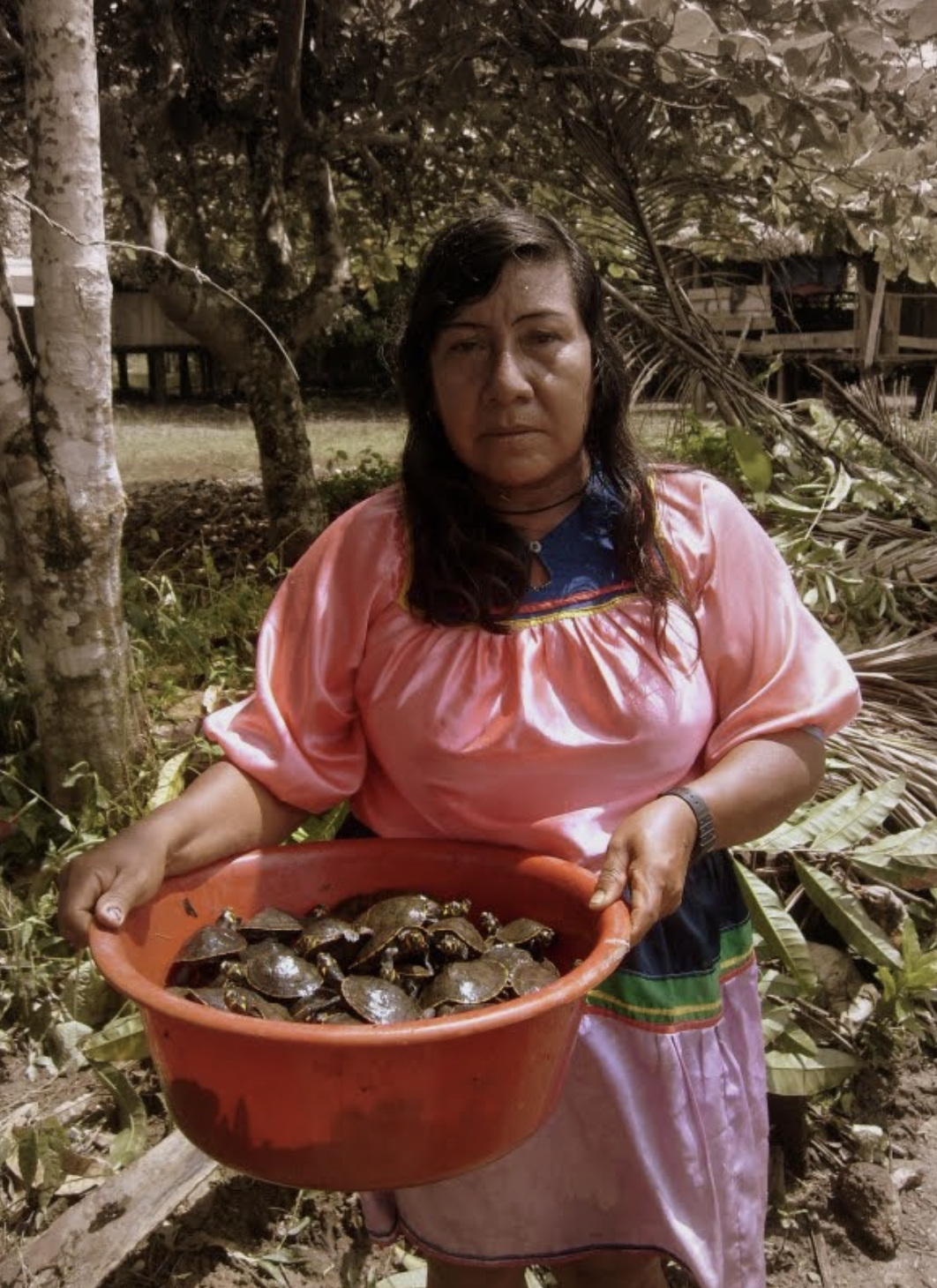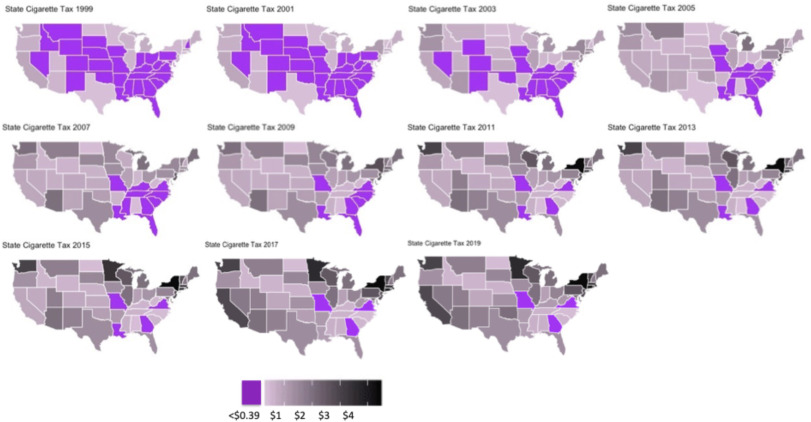Environmental Studies

Professor and Associate Director of the Center for Reimagining Leadership, Sikina Jinnah co-authored “Early Engagement Will Be Necessary for Atmospheric Methane Removal Field Trials” Environmental Research Letters” with Stanford Ph.D. student Celina Scott-Buechler for Environmental Research Letters. This paper draws lessons from Jinnah's work on the governance of solar geoengineering, another highly controversial climate intervention technology, to argue for the critical importance of early public engagement around outdoor field trials for atmospheric methane removal.
Alongside Jinnah's Ph.D. student, Zach Dove (Politics) and Environmental Studies undergraduate alumnus and former Building Belonging fellow, Arien Hernandez, Jinnah published “Global Perceptions of Solar Geoengineering: A Review and Gap Analysis” in Energy Research and Social Science. This study includes a meta-analysis of the literature on public perspectives on solar geoengineering. It quantifies and illuminates deep injustices in solar geoengineering research in terms of who is doing it and whose perspectives are being studied.
For the past two years, Jinnah served on the National Academies of Sciences, Engineering, and Medicine (NASEM) committee, which was charged with developing a research agenda for the development of atmosphericmethane removal technologies. In October 2024, the committee published its findings in a report. Jinnah also served on the briefing team for the report, which included briefings for federal agencies, the public, and congressional staff.
Professor Flora Lu was a senior author of a paper entitled "Amazonian conservation across archipelagos of Indigenous territories," published in Conservation Biology. In this paper, the authors describe a new concept to describe Native Amazonian Lands in South America: archipelagos of Indigenous territories (AITs), or clusters of Indigenous territories that span geographies but are connected through shared cultural or political ties. AITs cover 45% of Amazonian land area, have high species richness and carbon stocks, and are under great pressure from extractive industries.

Lu also co-authored "Conservation and care: Cofan lessons for stewarding abundance in Amazonia" for Human Ecology. The paper describes asettu'cho, a community-based system developed by the Cofan of Ecuadorian Amazonia, as an ethics of care for human and non-human life. It starkly contrasts with Western conservationist approaches that withdraw care for people living in conservation areas, enact epistemic exclusion, and operate from a frame of scarcity and restriction rather than abundance and relationality.
Lastly, Lu co-authored the paper "Shuar women confronting extraction in the Ecuadorian Amazon: A feminist and community-centered political ecology" with Kati Alvarez and Gabriela Valdivia in the Journal of Latin American Geography. This article describes how oil companies cause ruptures in the reorganization of community social reproduction of the Centro Shuar of Tiguano. The authors focus on the struggles of the Indigenous women of the community of Tiguano, describing their daily patterns and spaces of negotiation with, adaptation to, and rejection of extractive activities.
Associate Professor Madeleine Fairbairn published "The incumbent advantage: corporate power in agri-food tech" in the The Journal of Peasant Studies, which draws on extensive interviews and participant observation to explore the influence of established agribusiness firms within the Silicon Valley agri-food tech sector. In addition to investing in and acquiring agri-food tech startups, Fairbairn and her co-author find that established agribusinesses are also shaping the sector in more subtle and indirect ways. In particular, they find that startups are frequently driven toward partnership with incumbents in order to achieve the rapid growth demanded by their venture capital funders. With the rise of digital technologies, a body of scholarship on “platform capitalism” has raised concerns over monopolistic tendencies, lack of accountability, expanded rentiership, workers’ precarity, and more. Existing research on platforms, however, has a distinctly urban bias, with little attention paid to how platform capitalism unfolds in agrarian settings.
In her second published article of the fall quarter, "Agrarian Platform Capitalism: Digital Rentiership Comes to Farming," Fairbairn and her co-authors bring together critiques of platform capitalism with the distinctive features of agrarian political economy.
Latin American and Latino Studies
Professor & Chair Catherine Ramírez published “Undocutime: DREAMers, Lost Children Archive, and the Politics of Waiting and Storytelling in Twenty-first-Century Migration Narratives" in the journal Latino Studies, which introduces the concept of undocutime, or the prolonged waiting, permanent temporariness, enforced presentism, devaluation of the time, and persistent patience of the undocumented. The essay also brings together Valeria Luiselli’s 2019 novel, Lost Children Archive, and DREAMer narratives, stories by and about would-be beneficiaries of the Development, Relief, and Education for Alien Minors (DREAM) Act.
Assistant Professor Justin Perez published "Kinship by Coincidence: Episodes of arrival in travesti and transfeminine migration across Amazonian Peru" in the Journal of Latin American and Caribbean Anthropology. Drawing primarily on ethnographic interviews, the article compares how transfeminine migrants in Peru consider relatedness as a matter of coincidence with how dominant theories of queer kinship frame relatedness as a matter of choice. As a result, the article illuminates some of the limits of the traditional model of “chosen families” as it has developed in anglophone queer studies.
Politics
Distinguished Professor Matt Sparke co-authored the Politics journal article “Alternative archives: Researching politics with chunks of reality,” which explores how access to information today is frequently blocked by the interests of political management, corporate monopoly, and surveillance capitalism. At the same time, digital archives, social media, blogs, global communications, and even the tools of authoritarian control create innumerable alternative access points for research. In this article, the authors describe these other access points as “alternative archives,” and, in doing so, seek to highlight three overlapping definitions of their alternative status in terms of (1) empirical, (2) counter-hegemonic, and (3) epistemic meanings.
Psychology
Distinguished Professor Jean E. Fox Tree co-authored the article “Framing, more than speech, affects how machine agents are perceived,” published in Behaviour & Information Technology. The paper explores how the speed at which virtual agents and robots are being integrated into our daily lives has outstripped research into how people communicate with them. The authors discovered that the same audio signal was interpreted more positively when attributed to a person using an artificial voice box as opposed to a computer algorithm. This was true of both robotic-sounding voices as well as human voices. That is, people rated actual human voices worse when they believed they were machine voices. What people are told about a robotic voice is important to the perception of the voice.
UCSC Foundation Distinguished Professor Barbara Rogoff is currently serving as the President-Elect of Division 7 (Developmental Psychology) of the American Psychological Association. She recently co-authored the chapter “The cultural nature of helping without being asked, from the toddler years into middle childhood,” which was published in the Handbook of Advances in Culture and Psychology for Oxford University Press. Rogoff was one of three authors of a similar article in the Journal of Applied Developmental Psychology titled “Helping without being asked as a cultural practice,” exploring how cultural differences in 6- to 10-year-olds’ determine helping behavior without being prompted.
In the article “Mother-child collaboration in an Indigenous community: Changing and enduring across generations” for Child Development, Rogoff and her co-author uncover how globalization has impacted family interactions. Similarly, “Mothers’ reflections on generational changes in childhood in a Mayan town: Globalization challenges to convivencia/togetherness,” published in the Routledge Handbook of Childhood Studies and Global Development, examines mothers’ concepts of the reduction of interactions and their impacts on child development.
Sociology
This fall, Associate Professor Camilla Hawthorne entered as a Sociology Fellow at the Stanford Center for Advanced Study in the Behavioral Sciences. Through this 2024-2025 academic year fellowship, Hawthorne will be researching historical and contemporary ties between Black liberation struggles in southern Europe and North America to illustrate connective narratives between diasporas.

Assistant Professor Alicia Riley published a solo-authored article in Social Science and Medicine demonstrating how a single state policy, cigarette taxes, can weaken the educational gradient in mortality by increasing the lifespan for the lowest educated. Her article can inform efforts to modify other long-standing inequities in population health.
Riley is also co-PI of the MRPI-funded Indigenous Health and Social Networks Research Collaborative. This past quarter, Darío Leon, the Institute for Social Transformation research coordinator on the project, hosted the second annual Conectados Convening. The 2-day conference brought Indigenous community leaders from across the state to the UC Santa Cruz campus to discuss the needs of Native American and Indigenous migrant communities in California in the wake of the COVID pandemic.
